Obituary Utz Podzeit
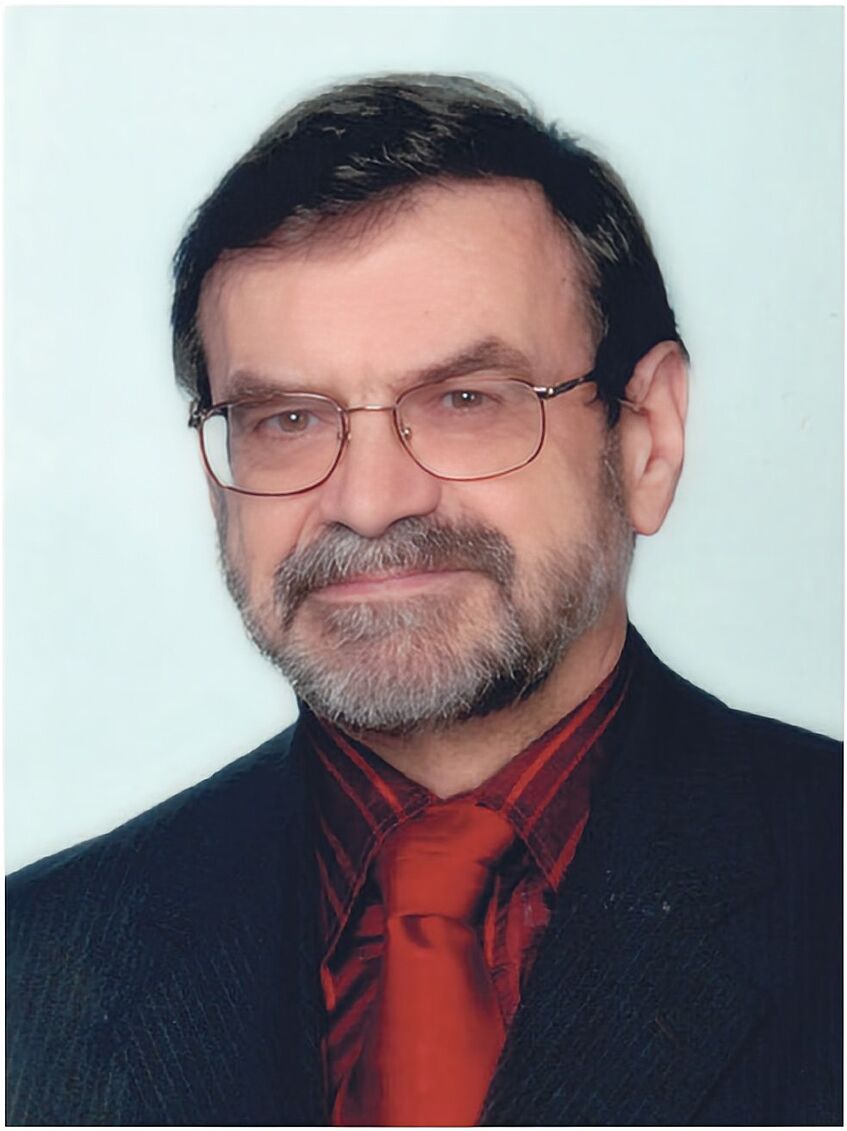
Obituary Utz Podzeit
by Karin Preisendanz
On May 9, 2022, our colleague Utz Podzeit passed away after a protracted major illness, leaving behind his wife Mechthild Podzeit-Lütjen and their three children.
Born in Salzburg, Podzeit first studied music at the Mozarteum, with the oboe as his main instrument, but then moved to Vienna in 1965 in order to study Indology at the former Department of Indology at the University of Vienna, where he was employed as a part-time student assistant from 1969 onwards. Soon after he had completed his PhD thesis with the title “Die Einleitung der Kṛṣṇa-Legende in literar- und ideengeschichtlicher Sicht” in 1972, he was appointed to the position of Contractual Assistant, later on Academic Assistant and then University Assistant. In 1980, he was promoted to Senior University Assistant, but in 1984 changed his academic orientation and took up a position in the Departmental Library for Indology which was simultaneously turned into a Branch Library of the University Library. Even before this, Podzeit’s main agenda at the Department had been to take care of its rich library holdings. After a period of professional training in library, documentation and information services, Podzeit was fully entrusted with the administration of the ever-growing library. From 1991 onwards, he was also regularly teaching intermediate-level reading courses in Sanskrit, translation exercises from and into the Sanskrit, and courses on Indological research methodology at the Department. In spite of these manifold duties, he continued to conduct research, and in 1997 achieved his habilitation with a thesis on “Die Wandlungen Kṛṣṇas zum höchsten Gott. Philologische Studie zur Kṛṣṇa-Gopāla-Legende,” which was published earlier in the same year.
The central research interest of Podzeit was the history of Indian religion, especially the Kṛṣṇa story and its development reflected in Epic and Puranic literature, as is evident from his PhD and habilitation theses as well as his papers “Zum Konflikt zwischen Kaṃsa und Kṛṣṇa: Kaṃsas Befehle zum Kindermord in H.2,1,21 ff. und H.2,2,1 ff. (Wiener Zeitschrift für die Kunde Südasiens [WZKS] 17, 1973), “The Connection between Kaṃsa and Kālanemi: A Note on a Myth of the Purāṇic Kṛṣṇa-Story” (Annals of Oriental Research University of Madras. Silver Jubilee Volume 1975), “Der Pūtanāvadha in der purāṇischen Kṛṣṇa-Legende (published under the name Ulrich Kurz-Goldenstein) (WZKS 32, 1988), “A Philological Reconstruction of the Oldest Kṛṣṇa-Epic: Some Remarks in the Light of the Pralamba-Myth” (WZKS 36, 1992), “Bemerkungen zum ‘Sinn’ des Namens Vāsudeva” (Orbis Indicus = WZKS 38, 1994) and “Devakī, die Mutter des Kṛṣṇa” (WZKS 39, 1995). Beyond that, Podzeit was intensely interested, and also personally involved, in interreligious dialogue, hermeneutics of religion and philosophy of religion, as is documented already in 1982 in a booklet entitled “Duisternis uit het oosten. Goeroes, sekten en valse hoop als voorlopers van de antichrist,” the monograph “Seelenwanderung oder Wiedergeburt?” (1984) and the contribution “Begegnung im ‘sich-öffnend-dasein-für’: Die Sammlung De Nobili als Ort des dialogischen Gesprächs,” which was published in 1994 as an appendix to the association’s felicitation volume for Gerhard Oberhammer at the occasion of his 65th birthday (Hermeneutics of Encounter. Publications of the De Nobili Research Library 20). In this appendix, Podzeit provides details on, and short characterizations of, the first three interdisciplinary symposia organized by the association in Vienna (1973, 1977, 1981; see Publications of the De Nobili Research Library 2, 5 and 9), a symposium with Indian theologians held in Pune (1976), and two follow-up symposia in Vienna (1988, 1992) which were organized jointly with the Austrian Academy of Sciences (see Symposia and Related Symposia). Podzeit was also the editor of the monumental “Gerhard Oberhammer: Ausgewählte Kleine Schriften” published by the association in 2007 (Publications of the De Nobili Research Library 33). Podzeit’s special interest in the dialogue with Judaism is expressed in his monograph “Die Freude an der Tora als Weisung des Weges zum Vater. Auslegungen der Rabbinen und des Aurelius Augustinus zu Psalm 1” (2009) and the contribution “‘Pfuy, schämt euch, ihr Juden!’ Der Prediger Abraham a Sancta Clara und die Juden” to the journal Dialog – DuSiach (81, 2010), published by the Koordinationsausschuss für jüdisch–christliche Zusammenarbeit, Vienna.
Furthermore, as the final assignment required to complete his training as librarian, Podzeit produced a descriptive catalogue of the Indian manuscripts preserved at the University Library of the University of Vienna (“Die indischen Handschriften an der Universitätsbibliothek Wien,” 1988).
As a member of the founding executive board of the association, Podzeit served as its secretary from 1989 to 2014, and from 2014 to 2016 as its deputy secretary, until his ailments forced him to retire from this function. From 2002 to 2016, he was also co-editor of the Publications of the De Nobili Research Library.
Podzeit will be remembered as a true stalwart of the association.
For some personal aspects, we refer to the death notice sent out by his family.
Obituary George Chemparathy
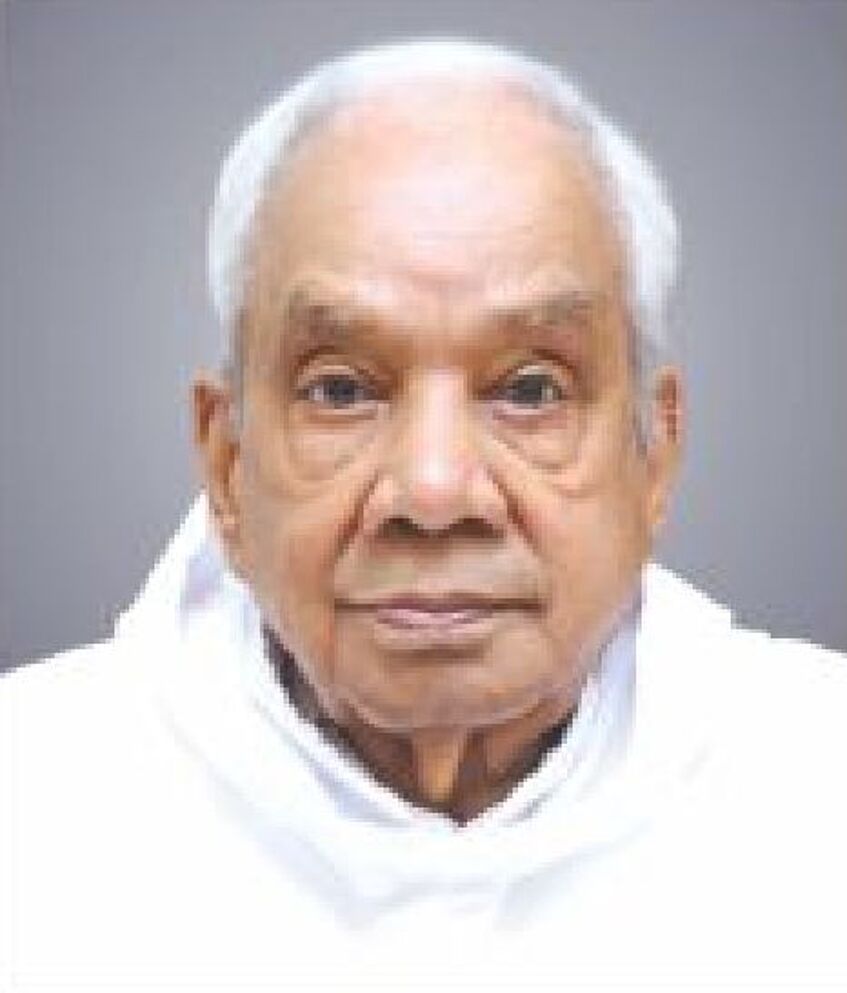
Obituary George Chemparathy
by Karin Preisendanz
George Chemparathy, OH, passed away peacefully in his sleep on November 24, 2021, in the care of his fellow Brothers of St. John of God at Kattappana, Kerala, at the age of 93. Even though he was not a member of the De Nobili Research Library, he was closely connected with it and with the Department of South Asian, Tibetan and Buddhist Studies of the University of Vienna from the 1960s onwards when he was a PhD student studying with Erich Frauwallner at the then Department of Indology. After he had obtained his degree in 1963 with a thesis on “Aufkommen und Entwicklung der Lehre von einem höchsten Wesen in Nyāya und Vaiśeṣika”, he moved to the University of Utrecht in the Netherlands where he took up the position of lecturer at the Department of Oriental Studies and in 1973 obtained the degree of D.Litt. under the supervision of Jan Gonda. His D.Litt. thesis on the Nyāyakusumāñjali of Udayana, the founding father of Navya Nyāya, was published in 1972 as the first volume of the series Publications of the De Nobili Research Library under the title of “An Indian Rational Theology. Introduction to Udayana's Nyāyakusumāñjali”. This book, devoted to a precise and careful presentation and analysis of Udayana’s sophisticated arguments towards the proof of God in this work, also in relation to Udayana’s concept of God as seen in his other works, has remained a valuable contribution to the knowledge of this central issue in the history of classical and medieval philosophy in South Asia, as can be seen from the fact that it became the first volume of the series that was sold out and therefore reprinted in 2018 as the first volume of an Indian reprint series of the Publications of the De Nobili Research Library with Motilal Banarsidass, Delhi.
Chemparathy devoted most of his subsequent life as a scholar, theologian and philosopher, from 1980 onwards until his retirement in 1990 as Professor of Indian Philosophy at Utrecht University, to the in-depth research on the various aspects of the notion of God in South Asian philosophical traditions, supplemented by studies of the related concept of the Veda in Nyāya–Vaiśeṣika. Next to numerous scholarly articles on these crucial topics, some of which appeared in publications connected with the De Nobili Research Library and Austrian Indology in general, he published the monograph “L’autorité du Veda selon les Nyāya-Vaiśeṣikas” in 1983. His thesis written towards the degree of S.T.D. (Sacrae Theologiae Doctor) obtained in 1978 from the Catholic University of Louvain-la-Neuve, “La Bible et le Veda comme parole de Dieu. Un essai en théologie comparé”, was published out of series under the auspices of the De Nobili Research Library in 2010.
For all his academic life, Chemparathy remained closely attached to his colleagues in Vienna. After his retirement, he served twice as visiting professor at the University of Vienna, in 1990–1991 and 1995, and stayed in touch with them even after his move back to Kerala, the country of his birth, in 2012. The association will remember him with much appreciation and affection.
A list of Chemparathy’s publications can be consulted at https://www.dutchstudies-satsea.nl/deelnemers/george-chemparathy/.
For the announcement of Chemparathy's funeral by the Brothers of St. John of God please click here; his family also kindly shared the "memory card" which was distributed at Chemparathy's memorial service with the Association.
Obituary Andreas Bsteh
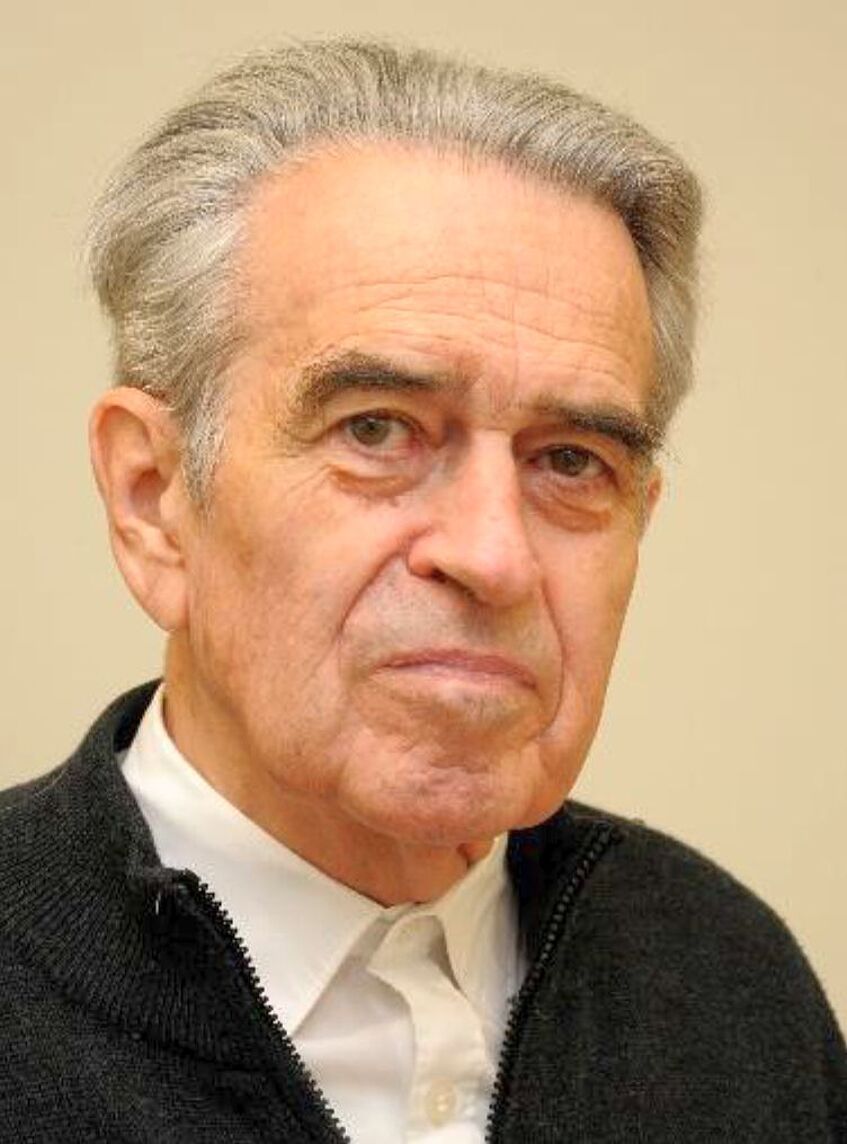
Obituary Andreas Bsteh
by Karin Preisendanz
Andreas Bsteh was an active member of the association De Nobili Research Library right from its inception who was suggested as a regular member at the constitutive meeting on December 5, 1989, and participated in the first general assembly on March 30, 1990. Deeply involved in interreligious dialogue and understanding all his life, he was a regular attendant of the various symposia organized by the De Nobili Research Library even before the inception of the association under this name. He himself organized several symposia on the Christian dialogue with other religions, which were documented by the series “Studien zur Religionstheologie” published by the Institute for the Theology of Religion, which he had founded in 1991 at the Theological College (deemed University thanks to his efforts) St. Gabriel in Maria Enzersdorf, Austria. In order to celebrate the conclusion of the English translation of this multi-volume series as “Christian Faith in the Encounter with Other Religious Traditions”, a joint festive event was organized in 2011 by the Institute and the De Nobili Research Library at the University of Vienna under the title “Encounter as a Challenge to the Religions on Their Way into the Future”. The central lecture at this occasion was presented by Francis X. Clooney, SJ, as the third Annual De Nobili Lecture. In 2012, Bsteh served as a member of the jury for the first essay competition organized by the Association on a topic that he had helped to formulate, namely, “Dimensions of the Christian Encounter with the Religions of India: Aims, Possibilities, Ramifications”. The outstanding results of this competition were eventually published in revised and expanded form in 2021 under the title “Transposition and Transformation, Controversy and Discovery. On the Christian Encounter with the Religions of Eighteenth and Nineteenth-Century India”.
The Association will greatly miss Andreas Bsteh, his constant support and valuable contribution to its agenda, and his engaging kindness.
Andreas Bsteh’s many achievements are sketched in his death notice and a personal essay by his brother Petrus Bsteh. Andreas Bsteh’s engagement in interreligious dialogue is highlighted by Brigitte Proksch in her report “‘Geschichte eines Dialoges’ – Das Vermächtnis des Andreas Bsteh”, published in Religionen unterwegs 3 (2021).
Obituary Elisabeth Hofstätter
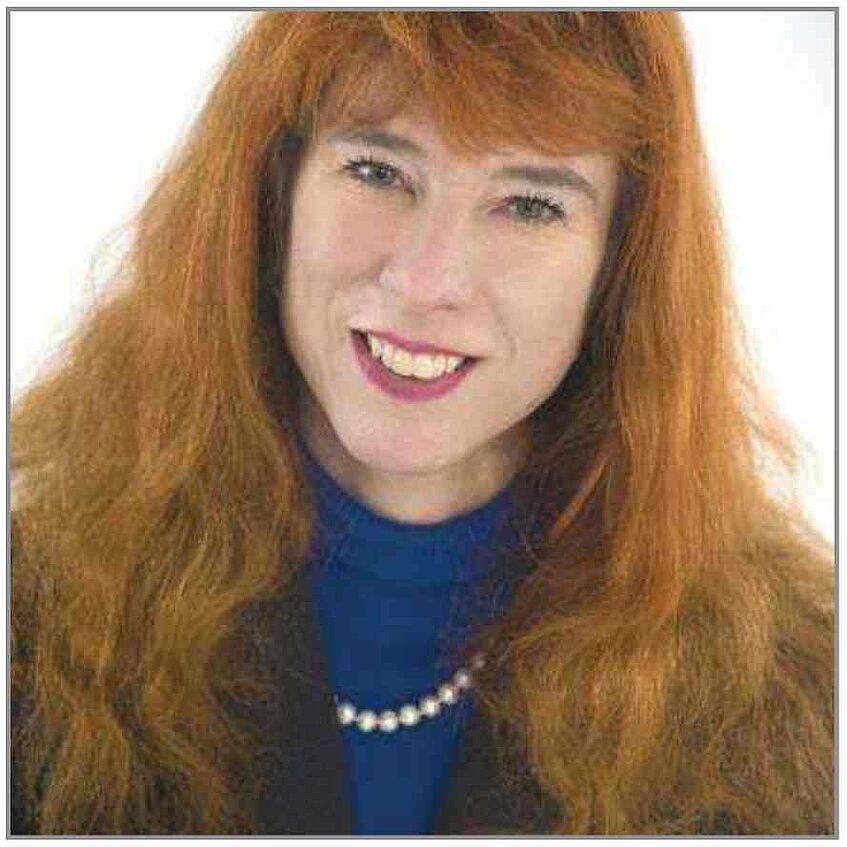
Obituary Elisabeth Hofstätter
by Karin Preisendanz
Elisabeth Hofstätter died on 15 February 2019 after a short but severe illness. In her passing away, the Department of South Asian, Tibetan and Buddhist Studies of the University of Vienna has lost an excellent graduate, a committed sessional lecturer of many years and an extremely lovable colleague.
Hofstätter ideally combined Indology and Religious Studies in a double degree course at the University of Vienna, which she completed in the field of Indology in 2000 with a diploma thesis on quotations and the style of quoting in Madhva's Bhagavadgītābhāṣya, and in the field of Religious Studies in 2002 with a diploma thesis entitled "Die Göttin Kālī in Ost und West: von der blutrünstigen Stammesgöttin zur Galeonsfigur der Frauenemanzipation" ("The Goddess Kālī in East and West: from the bloodthirsty tribal goddess to the galleon figure of women's emancipation"). This was followed by a doctorate in Indology. The dissertation with the title "Erleuchtung durch göttliche Energie: Untersuchung der Lehre von 'śaktipāta' anhand einer annotierten Übersetzung des XIII. Āhnika-s von Abhinavaguptas Tantrāloka" ("Enlightenment through divine energy: investigation into the 'śaktipāta' teaching on the basis of an annotated translation of the XIIIth Āhnika of Abhinavagupta's Tantrāloka"), comprising a total of nearly 700 pages, was submitted and successfully defended in 2005, and published by the Südwestdeutscher Verlag für Hochschulschriften in 2017.
The following years witnessed, inter alia, the publication of several book chapters in the area of spirituality, religion and culture at the sickbed and in the hospital, on aging and healing in religions, and on the spiritual renaissance in medicine. All these topics belong to the medical field, in which Hofstätter worked as a biomedical analyst alongside her university studies and scholarly research, and this with great success. She was also engaged tirelessly in imparting interreligious and intercultural competence to the staff of the Wiener Krankenanstaltenverbund (Vienna Hospital Association) by giving lectures on pertinent topics of Religious Studies and South Asian Studies, and by conducting relevant courses.
In 2006, Hofstätter’s commitment was honored with the Health Award of the City of Vienna in the category "Medien/Öffentlichkeitsarbeit" ("Media / Public Relations work") for a project on interculturality and interreligiosity in hospitals. Most recently, she worked as a divisional coordinator for the central ombuds office of the general management of the Wiener Krankenanstaltenverbund.
In 2015, Hofstätter completed another doctoral program with a dissertation within the framework of the doctoral college "Palliative Care and Organizational Ethics" at the Institute for Palliative Care and Organizational Ethics of the Faculty of Interdisciplinary Research and Continuing Education, Vienna, of the University of Klagenfurt, entitled "Lernziel: 'Spiritueller Mensch'? Eine kritische Auseinandersetzung mit Bildungsangeboten in Spiritual Care" ("Learning goal: 'Spiritual man'? A critical examination of educational offers in spiritual care").
Between the winter semester of 2003/2004 and the summer semester of 2010, Hofstätter regularly contributed to the Department's courses with popular classes in the field of Gender Studies (e.g., on Indian goddesses in East and West, on the role of the female in Hindu Tantrism, and on the goddess Kālī) and Kashmir Shaivism.
As a long-standing member of the Association of the De Nobili Research Library, Hofstätter served as auditor for several periods.
Obituary Chlodwig H. Werba
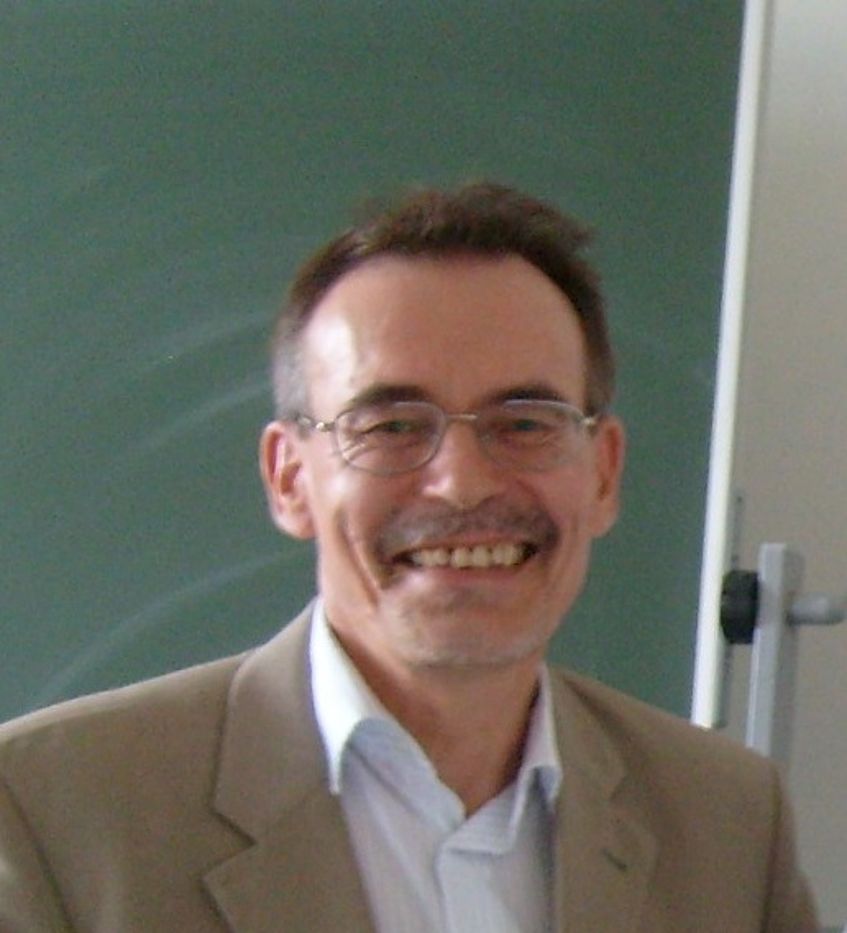
Obituary Chlodwig H. Werba
by Karin Preisendanz
After a short severe illness, our friend and colleague Chlodwig H. Werba passed away on January 25, 2019, leaving behind his wife Ursula Werba-Berger.
Even before completing his doctoral dissertation (a distinguished “promotio sub auspiciis praesidentis rei publicae”) in Linguistics and Classical Philology on “Die arischen Personennamen und ihre Träger bei den Alexanderhistorikern (Studien zur iranischen Anthroponomastik)” at the University of Vienna in 1982 (unpublished), Werba had been employed as a student assistant at the former Department of Indology of the University and involved in its various editorial projects. From 1983 onwards, he was University Assistant at the same department and started to regularly teach there, competently contributing the (historical )linguistic aspects of Vedic, the Prakrit languages and classical Sanskrit to the teaching program. In 1994, he received tenure, which was followed in 1997 by his habilitation in the field of Indo-Iranian Studies with a thesis published in the same year as “Verba Indoarica: Die primären und sekundären Wurzeln der Sanskrit-Sprache. Pars I: Radices Primariae” by the publishing house of the Austrian Academy of Sciences, Vienna. This monumental monograph (590p.) is Werba’s lasting opus magnum which characterizes him as an extremely meticulous and competent, broadly informed and well organized historical linguist with a seemingly inexhaustible collector’s passion.
Werba published several papers, mainly in Iranian linguistics, his main area of research interest. Among these, the following two should be especially mentioned:
“mavared-ra na-bayad ziyad kard be joz-e ehtiyaj [(Indo-)Iranische Rekonstrukte als textkritisches Korrektiv in der Altiranistik”, in Iranistik in Europa: gestern, heute, morgen. Akten der Fachtagung in Graz, 12.–15.02.2003, ed. H. Eichner et al., Wien: Verlag der Österreichischen Akademie der Wissenschaften 2006, pp. 261–306.
“Das Epitheton achaimenidischer Macht und Größe: Medisches Erbe oder altpersische Neubildung”, in Ranj-o Ganj: Arjnāme-ye Dr. Zohre Zaršenās. Papers in Honour of Prof. Z. Zarshenas Part II, Teheran: Institute of Human Science and Cultural Studies 2013, pp. 119–240.
He was also interested in aspects of the history of Indology, seen, e.g., in “Leopold von Schroeder: Eine annotierte Bibliographie”, co-authored with Arlo Griffiths and published in the Wiener Zeitschrift für die Kunde Südasiens / Vienna Journal of South Asian Studies (WZKS) 50, 2006, pp. 5–25.
Next to collecting material for the first and (almost completed) second part of his “Verba Indoarica”, Werba’s main field of activity was in editing and indexing. Since his days as a student assistant in 1979, he was involved in various ways in the editing of the WZKS and from volume 44 onwards (2001) acted as co-editor. Together with Gerhard Oberhammer, he also edited the second volume of Erich Frauwallner’s posthumous works, entitled “Philosophische Texte des Hinduismus” (Wien: Verlag der Österreichischen Akademie der Wissenschaften 1992). Moreover, Werba was a passionate and highly conscientious academic teacher, both at the Department of South Asian, Tibetan and Buddhist Studies of the University of Vienna and at its Department of Linguistics.
Werba was a member of the founding executive board of the association "De Nobili Research Library – Association for Indology and the Study of Religion" in the function of deputy secretary from 1989 until 2000.
The Department of South Asian, Tibetan and Buddhist Studies of the University of Vienna and the association have lost an always engaged, highly knowledgeable and sometimes enjoyably disputatious colleague. He will be deeply missed by colleagues and students alike.
Obituary Roque Mesquita
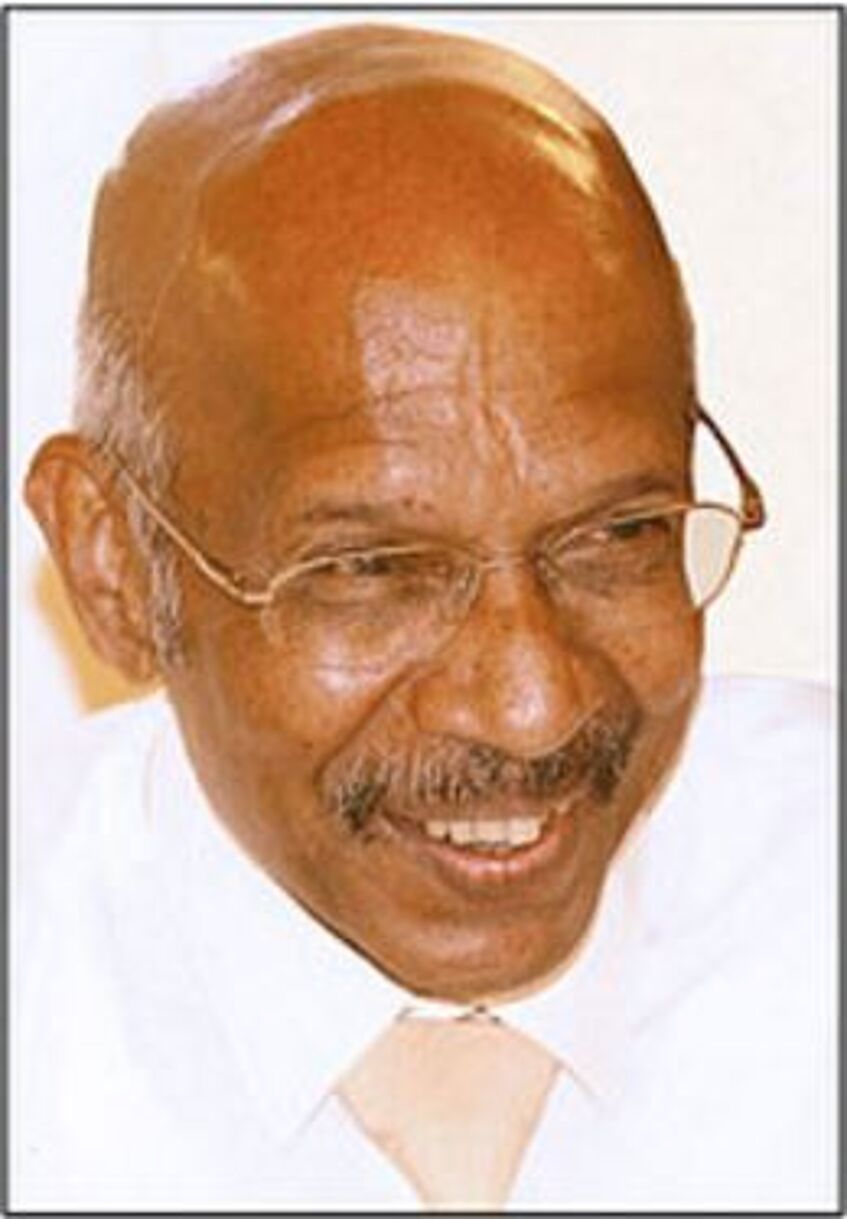
Obituary Roque Mesquita
by Himal Trikha and Karin Preisendanz
Roque Mesquita passed away peacefully on September 22, 2016 after a protracted illness. He leaves behind his wife Erika, their children Sushila, Dominik and Sunanda, and a granddaughter, Marcia.
Born and educated in Goa, Mesquita deepened his theological education at the Gregorian University, Rome, before taking up the study of Indology at the University of Vienna’s Department of Indology with Gerhard Oberhammer. He initially specialized in the study of Viśiṣṭādvaitavedānta, especially the teachings of Yāmunamuni. In 1971, he completed his doctoral dissertation on the problem of the cognition of God in Yāmunamuni’s writings, which was followed by a critical edition and annotated translation of Yāmunamuni’s Saṃvitsiddhi, including a reconstruction of the lost parts of this work, published in 1988. The Saṃvitsiddhi remained at the center of Mesquita’s research interests and was also the topic of his habilitation thesis on Yāmunamuni’s philosophy of cognition submitted in 1987 and published in revised and enlarged form in 1990. From the mid-nineties onwards, he turned to Dvaitavedānta and studied Madhva’s work. He wrote several books on Madhva which were published in the monograph series of the De Nobili Research Library:
Madhva und seine unbekannten literarischen Quellen. Einige Beobachtungen. [PDNRL No. 24]. Vienna 1997, 151p. (also translated into English)
Madhva, Viṣṇutattvanirṇaya. Annotierte Übersetzung mit Studie. [PDNRL No. 28]. Vienna 2000, Hardcover, 562p. (partly translated in revised form into English, see below)
Madhvas Zitate aus den Purāṇas und dem Mahābhārata. Eine analytische Zusammenstellung nicht identifizierbarer Quellenzitate in Madhvas Werken nebst Übersetzung und Anmerkungen. [PDNRL No. 34]. Vienna 2007, Hardcover, 643p. (also translated into English)
His final book, a partial revised translation of “Madhva, Viṣṇutattvanirṇaya. Annotierte Übersetzung mit Studie,” was seen through the press by his family and published as “Studies on Madhva’s Viṣṇutattvanirṇaya,” New Delhi: Aditya Prakashan 2016, 308p.
Mesquita engaged in lively discussions on his research as long as his health permitted. His last article, “Rejoinder II: Madhva's Unknown Literary Sources,” appeared in 2014 in Rivista di Studi Orientali 87.
From 1972 until his retirement in 2002, Mesquita was a faculty member at the Department of Indology, from 2000 onwards Department of South Asian, Tibetan and Buddhist Studies. He was a member of the founding executive board of the association "De Nobili Research Library – Association for Indology and the Study of Religion" in the function of deputy chairperson from 1989 until 2004, and was co-editor of “Hermeneutics of Encounter. Essays in Honour of Gerhard Oberhammer on the Occasion of his 65th Birthday” (Publications of the De Nobili Research Library 20).
The Department of South Asian, Tibetan and Buddhist Studies of the University of Vienna and the association have lost a dear and gentle colleague. His friendly and good-spirited nature will be very much missed.
Obituary Dorothea Sibylla Hoffmann
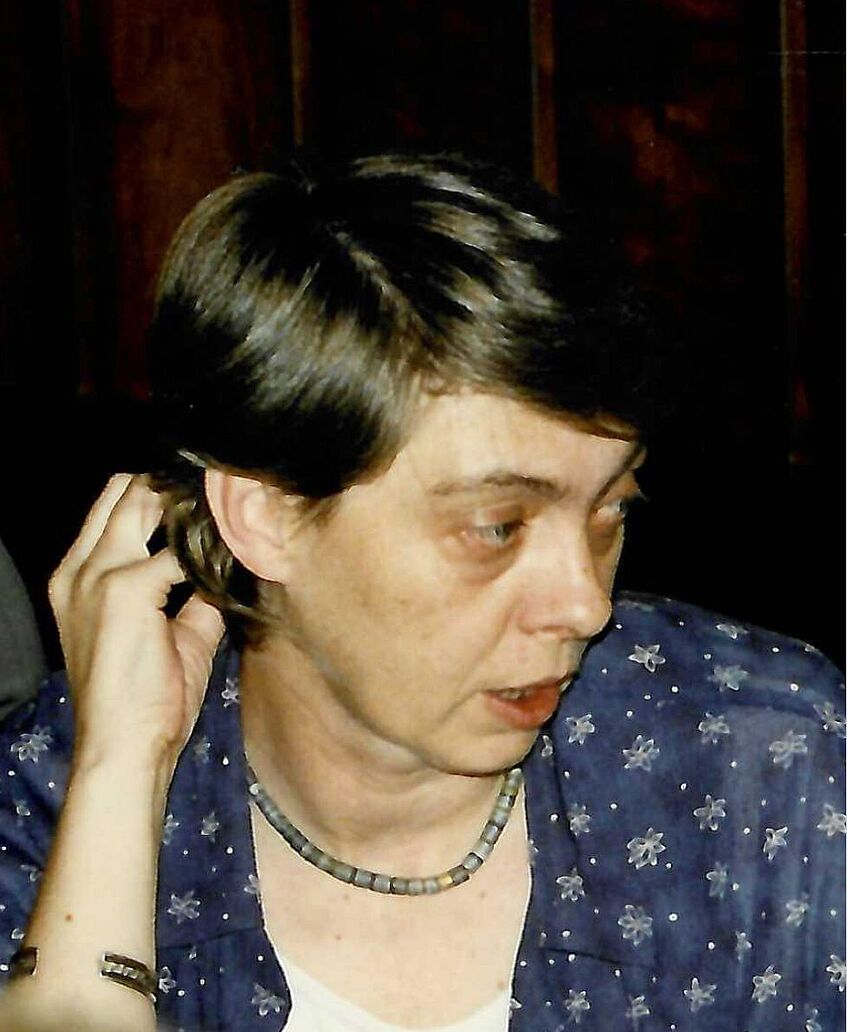
Obituary Dorothea Sibylla Hoffmann
by Karin Preisendanz
Dorothea Sibylla Hoffmann, née Zusanek, passed away in April 2001 after a severe illness had been discovered in early 2000, which allowed her to return to work only briefly before her sad demise. She functioned as cashier of the Association from its constitutive meeting in 1989 onwards until March 2000, when she was elected by the members of the Association as deputy cashier, and Himal Trikha to replace her as cashier. Next to her highly responsible official function on the executive board of the Association, Hoffmann substantially contributed to the main agenda of the Association, namely, the production of the books and papers in its two publication series, even before its founding in 1989, that is, already in the context of the De Nobili Research Library. Even though this has not always been acknowledged in writing, she was responsible for carefully preparing and proof-reading the camera-ready copies of the vast majority of publications in the two series, and for the related, often extensive correspondence with the authors from 1973 onwards when she was employed as half-time secretary at the then Department of Indology of the University of Vienna. In this position, she was inter alia also entrusted with the organization of the symposia of the De Nobili Research Library, with the cataloging of the books, and with assigning subject headings to them. Enrolled as a student of Indology since the academic year of 1966/1967, Hoffmann officially continued her studies until the summer term of 1979, but then abandoned them to devote herself fully to her secretarial duties, often working overtime, and to an additional three-year work contract, from 1980 to 1983, for the De Nobili Research Library.
In December 1984, Hoffmann was employed as full-time secretarial and administrative–organizational assistant at the Department (“Institutsreferentin – Dokumentation”). In 1988, she became a tenured secretary (“Amtssekretärin”), and in 1994 she was promoted to the position of the Department’s tenured main administrative officer (“Amtsrätin”).
Her voluminous posthumous papers clearly testify to Hoffmann’s central interest in Indian mythology and legends, from the Ṛgveda all the way to the Epics and even the Purāṇas. In two large ring binders, she had collected in neat handwriting the fruits of her extensive readings in mainly primary, but also secondary literature, lemmatized (1) according to personal names, with cross references to other lemmata and references to the relevant text passages, supplemented by diverse notes and brief sketches of the respective narratives as well as critical comments and questions, and (2) according to the Sanskrit names of animals, plants and places, and to crucial themes, all of which she supplemented in the same way as the lemmatized personal names. This rich collection of materials also documents Hoffmann’s excellent knowledge of Sanskrit.
Hoffmann’s manifold duties, as secretary, administrator, organizer and versatile, highly professional editorial assistant, and in addition – for some five years until 1999 – as the central contact person for the detailed planning of the move of the Department to the new campus, did not allow Hoffmann to continue her own research interests. However, she edited and published posthumously three studies related to ancient mythology and religion by her father, Harald Zusanek (1922–1989), a well-known Austrian writer and author of theatre and radio plays, who was professor at the Department of Film and Television of the College for Music and Performing Arts (Hochschule für Musik und darstellende Kunst) in Vienna:
Rhodos und Helios: Mythos, Topos und Kultentwicklung (1994).
Kalypso: Untersuchungen zum dios-Begriff 1 (1996).
Die Nymphen: Untersuchungen zum dios-Begriff 2 (1998).
Four further volumes were edited by Hoffmann’s brother Michael Zuzanek.
It is obvious that in her intense interest for mythology and religious studies, Hoffmann had been influenced by her father’s scholarly interests. Even though the Association is extremely grateful for her substantial work on its behalf, we regret that she never had the opportunity to publish her own writings. We also remember her as a kind, extremely warm-hearted, helpful and humorous person.
